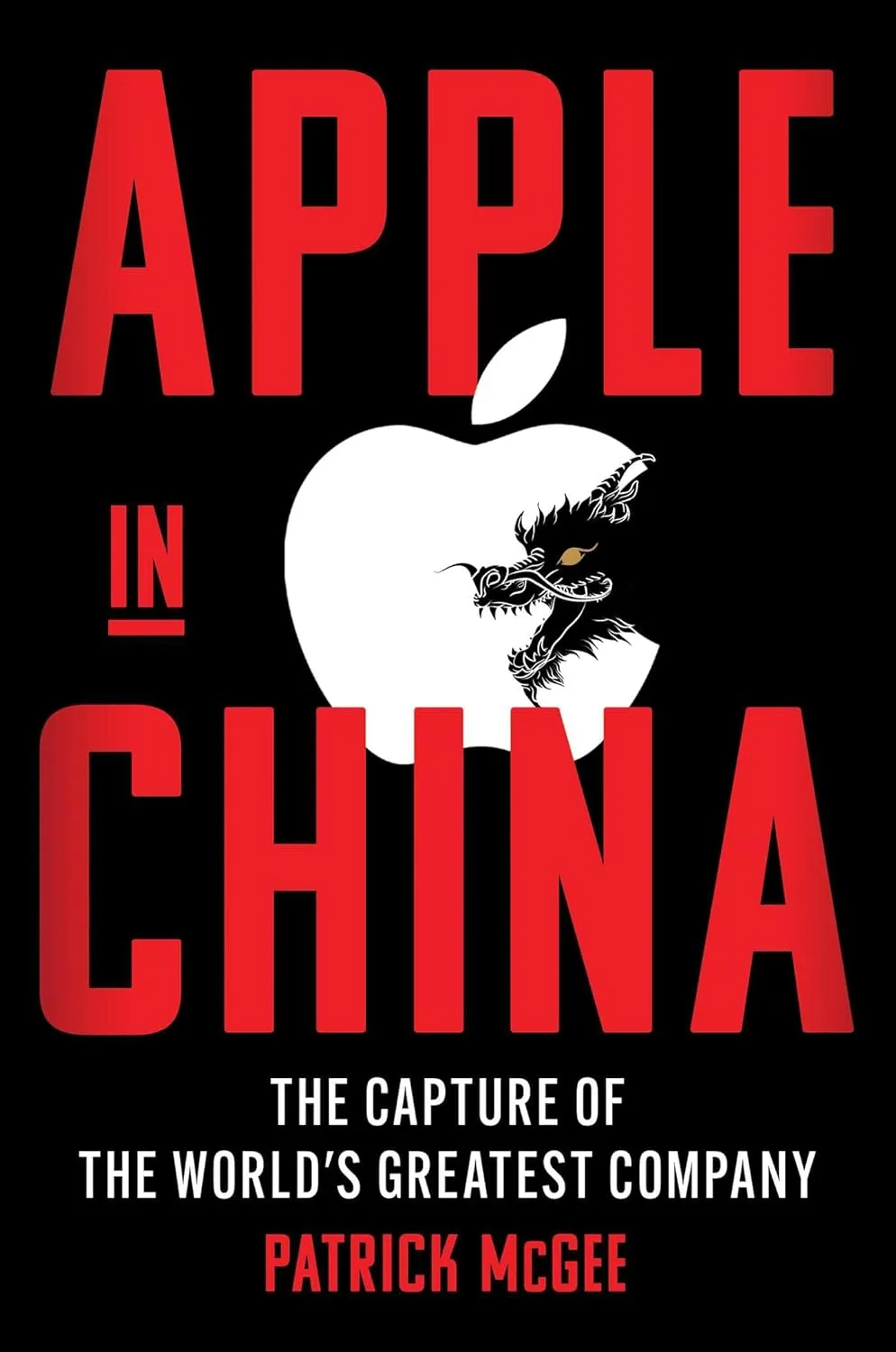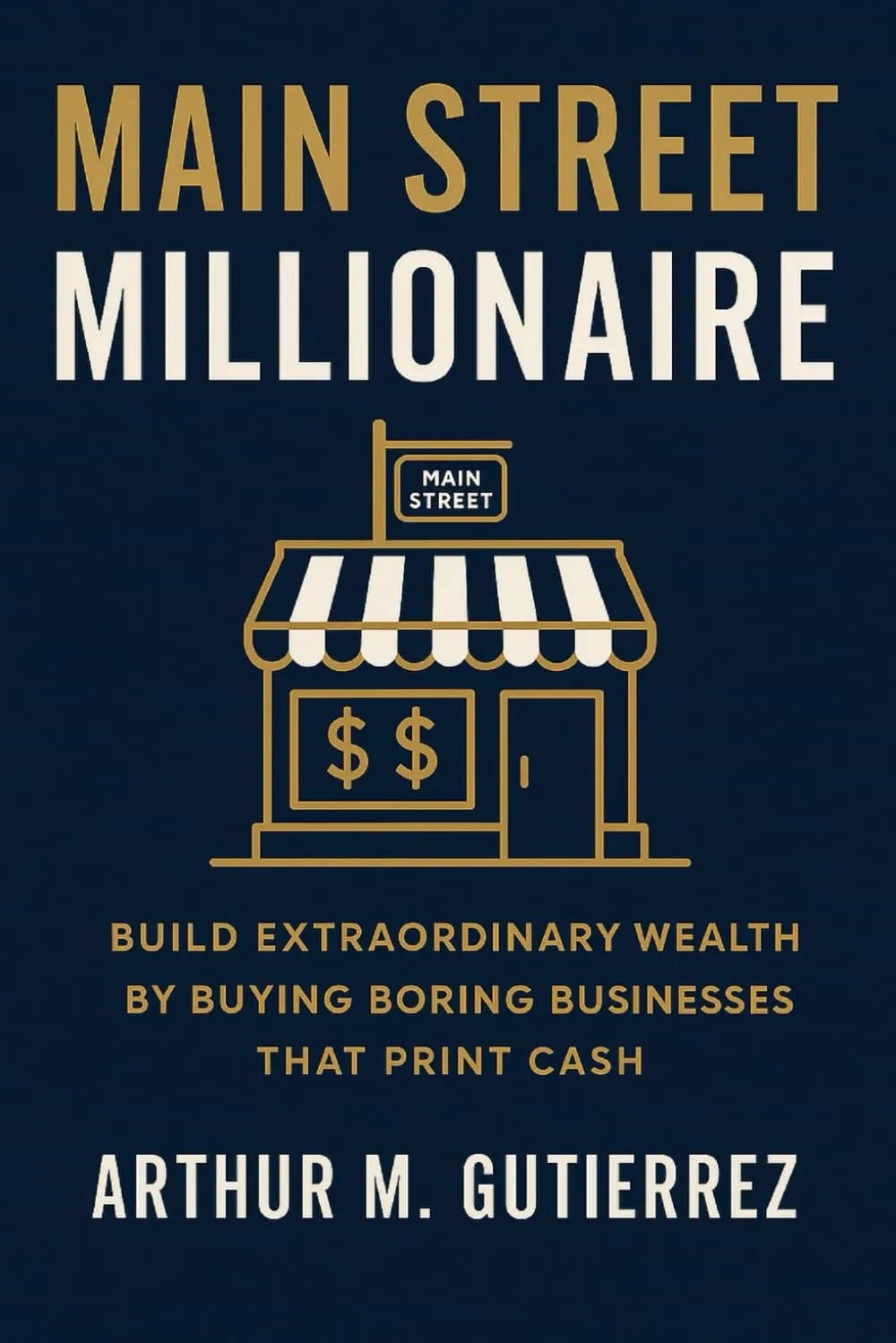📘 Book Summary
Apple in China: The Capture of the World’s Greatest Company is Patrick McGee’s gripping exposé on how Apple’s pursuit of profit and efficiency led to deep, and possibly irreversible, ties with China. Published in 2025, this extensively researched book examines how Tim Cook’s leadership guided Apple into becoming both a symbol of American innovation and a company heavily dependent on an authoritarian state.
Through vivid reporting and strategic analysis, McGee presents Apple’s success as a double-edged sword—one that empowered China’s technological rise and left Apple vulnerable to geopolitical risks, ethical dilemmas, and systemic dependencies. The book is a stark reflection on the consequences of globalization, corporate ambition, and the limits of capitalism in the face of state power.
🔑 Key Takeaways
- Corporate capture by authoritarian regimes: Apple’s success shows how profit-driven strategies can lead to unintended political entanglements.
- Manufacturing dependency: The company’s reliance on China for production has introduced serious strategic vulnerabilities.
- Technology transfer risks: Apple’s presence and investment in China helped accelerate local innovation and competition.
- Ethical trade-offs: To maintain access and efficiency, Apple made compromises that conflict with democratic values.
- Geopolitical consequences: Corporate strategies can have broad implications for national interests and global stability.
- Supply chain fragility: Over-concentration in a single region introduces systemic risk for global operations.
- Limits of corporate autonomy: Even Apple, the world’s most valuable company, can be shaped by state influence.
📚 Overview
McGee delivers a sobering reevaluation of Apple’s global role, portraying the company as a central architect of China’s rise as a tech superpower. The book interweaves corporate history with geopolitical insight, illustrating how Apple’s strategic decisions under Tim Cook have entangled it in China’s economic framework.
From boardrooms in Cupertino to factories in Shenzhen, McGee’s narrative reveals how Silicon Valley decisions reverberate through global supply chains and international relations. This account is as much about globalization’s unintended consequences as it is about Apple’s evolution.
✍️ About the Author
Patrick McGee covered Apple for the Financial Times between 2019 and 2023, earning recognition for his sharp insights and award-winning journalism. With academic training in religion, anthropology, and global diplomacy (University of Toronto and SOAS London), McGee brings a nuanced, interdisciplinary perspective to his business reporting.
Having reported from Hong Kong, Germany, and California, and previously covering the credit markets for Dow Jones and The Wall Street Journal, McGee is well-positioned to explain the intersection of global finance, technology, and international politics.
🌟 Reception and Impact
Apple in China has been widely praised for its rigorous research and thought-provoking narrative. While it occasionally delves into detailed corporate history, it stands out for connecting business decisions to broader ethical and strategic challenges.
Critics and readers alike have compared it to essential works like Walter Isaacson’s Steve Jobs and Chris Miller’s Chip War, praising its relevance and urgency. It has sparked discussions among policymakers, investors, and business leaders about the consequences of U.S. corporations operating in authoritarian environments.
More than just a corporate story, the book has contributed to public discourse about national security, supply chain resilience, and the future of globalization.
🌍 Plot and World-Building
McGee builds a compelling world where the seemingly mundane choices of supply chain logistics have world-changing consequences. In this landscape, the pursuit of cost efficiency clashes with national security, and innovation is both a gift and a weapon.
The book moves fluidly between locales—Silicon Valley, Shenzhen, and Washington—illustrating the tension between democratic ideals and commercial pragmatism. Apple’s growing dependency becomes a symbol of how globalization can entangle even the most powerful players in complicated geopolitical webs.
🎭 Main Storyline
The book charts Apple’s transformation into China’s most valuable and vulnerable corporate partner:
- Act 1: The Early Relationship – Apple enters China to leverage low-cost, high-efficiency manufacturing.
- Act 2: Deepening Ties – Under Tim Cook, Apple expands its Chinese footprint, integrating its supply chain and market presence.
- Act 3: The Capture – Apple’s success becomes a form of entrapment, exposing it to political risk and ethical compromises.
Throughout, McGee humanizes the story with first-hand accounts, shedding light on the lives of factory workers, executives, and policymakers caught in this global equation.
👑 Key Characters and Themes
- Tim Cook – Apple’s CEO whose decisions cemented the company’s interdependence with China.
- Chinese officials and business leaders – Key figures who leveraged Apple’s needs to strengthen China’s technological edge.
- Apple employees and suppliers – The people on the ground managing the consequences of strategic decisions.
Key Themes:
- Corporate capture – How authoritarian regimes can entangle even independent corporations.
- Hidden costs of globalization – Economic interdependence can mask ethical and strategic trade-offs.
- Technology transfer – Collaboration can inadvertently empower future rivals.
- Profit vs. principle – Apple’s values are tested in its relationship with China.
- Private decisions, public consequences – The ripple effects of corporate strategy on global politics.
- Supply chain fragility – Concentrated operations create systemic business risk.
🧠 Who Should Read This?
This book is particularly relevant for:
- Executives and business leaders evaluating international operations
- Policy makers and strategists concerned with economic security
- Investors and analysts assessing geopolitical risks
- Technology professionals involved in global manufacturing
- Students of international relations exploring the business–state nexus
- Readers interested in Apple’s inner workings and global footprint
- Anyone concerned about globalization’s long-term impact
💬 Best Quote
“Apple in China isn’t just a business story; it’s a geopolitical, economic, and ethical reckoning.”
This line captures the book’s core message: that Apple’s rise in China reflects not only corporate triumph, but also a cautionary tale about unchecked global integration.
📚 Final Thoughts
Apple in China stands out as both a corporate case study and a geopolitical warning. Patrick McGee delivers a meticulously detailed account of how Apple’s strategic decisions shaped not just a company, but a global balance of power.
While centered on one firm, the implications are far-reaching—touching on international trade, technology policy, and ethical governance. The book doesn’t vilify Apple, but it does ask tough questions about the price of success in an interconnected, often unstable, world.
McGee avoids simplistic conclusions, instead offering a nuanced analysis of the choices and trade-offs that led to Apple’s China entanglement. It is essential reading for those trying to navigate the future of business in a geopolitically fractured world.
👉 Read This If You…
- Want to understand how corporate decisions affect global power dynamics
- Are interested in Apple’s supply chain and strategic operations
- Work in tech, policy, or global logistics
- Need to assess business risk in authoritarian markets
- Care about the ethical dimensions of globalization
- Follow U.S.–China relations and tech competition
- Study the economic implications of innovation and outsourcing
❓ FAQ
Q: Is this book critical of Apple’s strategy?
A: McGee provides a balanced perspective, exploring both Apple’s rationale and the unintended consequences of its China strategy.
Q: Does it advocate for Apple to leave China?
A: No. The book explores the complexity of the situation and acknowledges the difficulty of reversing such deep interdependence.
Q: Is this relevant beyond Apple or tech?
A: Yes. The themes apply to any company operating in global supply chains—particularly in authoritarian countries.
Q: Does it address U.S.–China tensions directly?
A: Absolutely. The book offers key context for understanding how corporate actions feed into broader geopolitical dynamics.
Q: Is the content accessible to non-experts?
A: Yes. While deeply researched, McGee’s writing is clear and narrative-driven, making it accessible to general readers as well as professionals.







